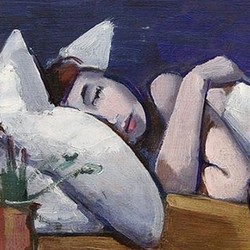- Details

For music lovers, the year 2020 should had been Beethoven year, to celebrate the 250th anniversary of the birth of the composer. Every concert hall had its "Beethoven programme" and it was even discussed if we were paying too much attention to him. How were we supposed to know that 2020 would be the year that the concert halls closed their doors!
- Details

To follow the career of a singer from its early years is exciting, we’ve talked about it before; it means watching how he chooses the repertoire, how his voice evolves, how he keeps learning, the way he runs his career... This follow-up is usually done in small groups, until one day his name begins to often appear in the media and his music is widely spread. That's the time of showing off; we really like saying things such as “I heard him in his debut” or “I told you that he was good”. Well, let's anticipate the moment, because Deutsche Grammophon announced a new artist some [...]
- Details

The Schubertíada begins in a week and I'm starting with this post the miniseries about the recitals there. As usual, they'll be shorter posts that intend to be useful to refresh the Lieder performed at the festival.
To begin with, the two first recitals, those of Florian Boesch and Malcolm Martineau on Thursday 20 and Juliane Banse and Wolfram Rieger on Friday 21. The first duo will perform Die schöne Müllerin and the second one, Winterreise.
- Details

Last week we said goodbye until next year to the students of the Master in Lied of the ESMUC, next week we'll start to talk about the recitals of the Schubertíada and in the meantime, I propose a trip by sea that, as you will see, is not a pleasure trip.
- Details

When one’s profession is being a musician, one enters a world in which if not all, most people that surround us don't understand what we do. I’m talking about the world of classical music, an unknown world for a big percentage of the world’s population, which in itself could be divided into sub-worlds: early music, opera, orchestras... and so on. Still, there are composers whose names go far beyond the borders of those sub-worlds and even the world of classical music; because of the diversity of their works, the volume of their work, their undisputable geniality or their very fortunate circumstances in the history of western music. [...]












